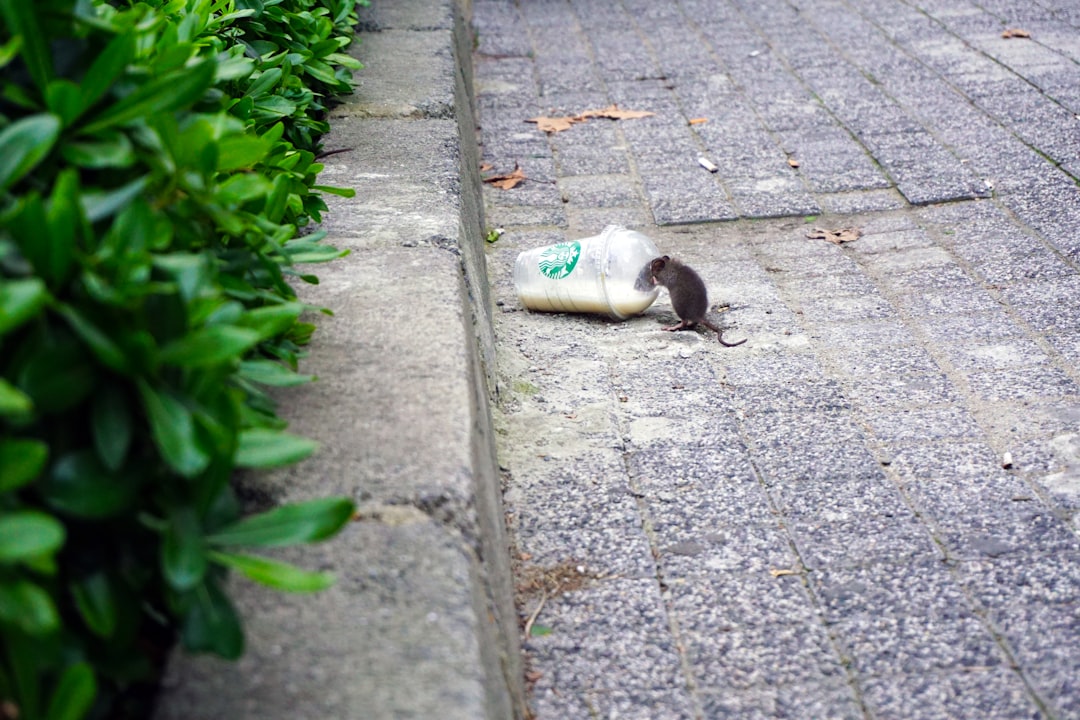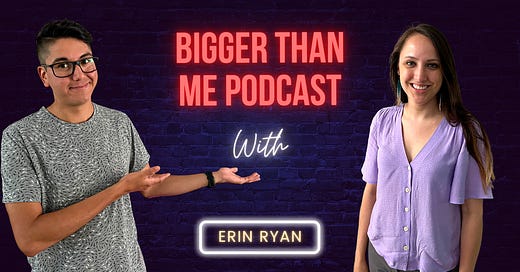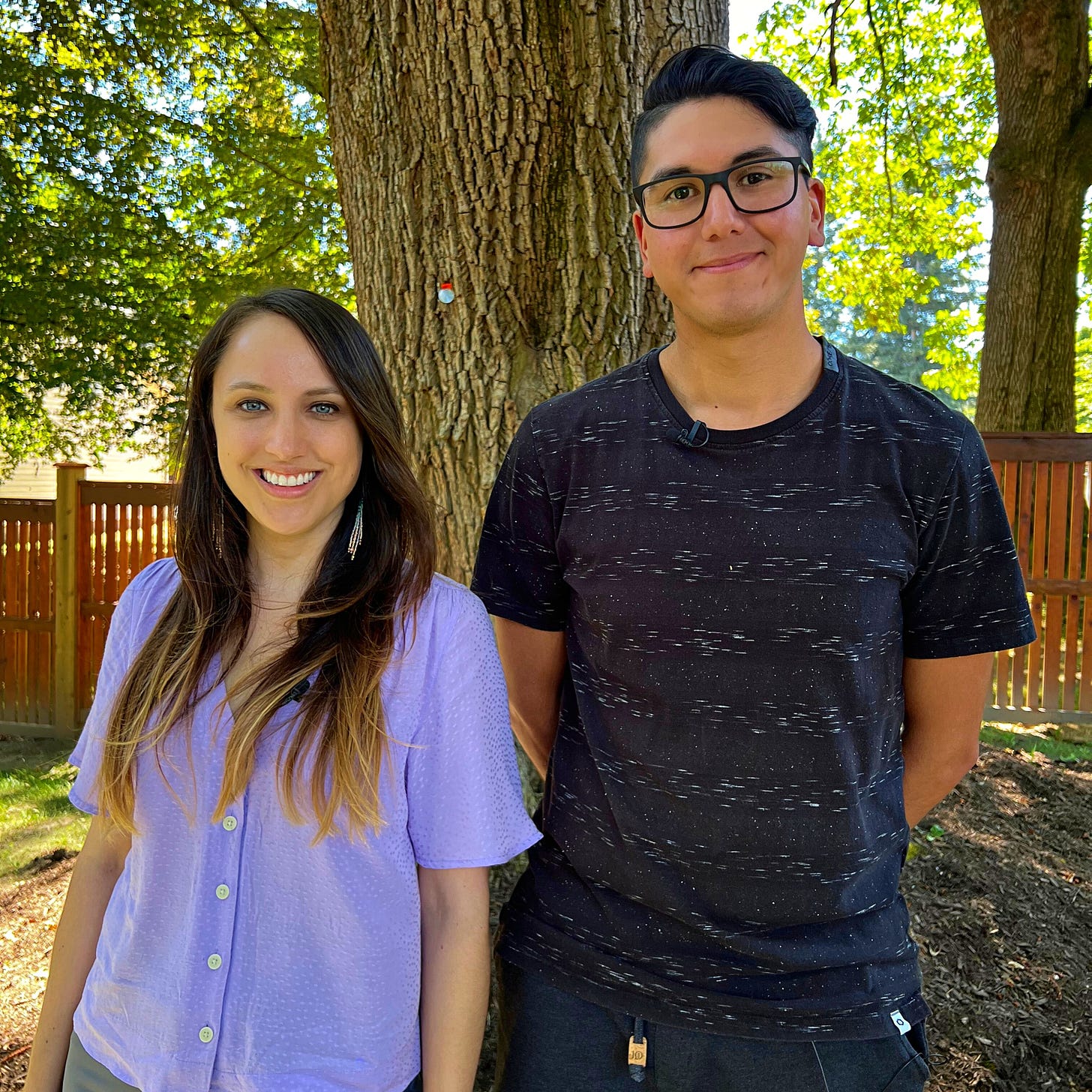Are We Good Stewards of the Land?
What I learned from speaking with Erin Ryan who works with the BC SPCA
What is our relationship with the ecosystems around us? Are we good stewards of the land or are we selfishly destroying the life around us for our own comfort? It’s an issue that can come filled with emotions, in part, because it is a collective problem. You can’t fix it easily. We all as a community have to agree on the problem and agree to proposed solutions. These types of problems are frustrating because we all play a role.
This means that we need to constantly be open to learning about how we could be doing better. That is what I hope to share during these interviews. During episode 42 I spoke with biologist Lee Harding about declining caribou populations and wolf culling in BC. He talked about how we are expanding our outdoor ATV businesses and its impacting the northern environment.
For episode 48 I spoke with Paul van Westendorp about bee populations. We all remember the Bee Movie right? I wanted to ask our provincial apiculturist what has been going on in BC regarding bees and the asian giant hornet. His comments were… concerning. He said they found the solution, and it was really simple… yet farmers didn’t want to take it. All he said the farmers needed to do was leave some bushes for the bees to pollinate, and to not harvest them. The farmers he spoke to viewed that as a waste, and politely declined.
During episode 53 I sat down with Kris Cu, a man passionate about biology and birds! We talk about the challenges various bird species face, and what research is going on to protect them. Specifically, we talked about birds that travel to Delta BC, to a specific waterway that has a specific type of amino acids that gives them the fuel they need to get to Alaska. He really highlighted how complex bird migration is, and how connected our planet is.
For episode 56 I spoke with the ever brilliant Dean Werk. We talked about the delicacy of the Fraser River and the fish that swim through it. We talked about the ancient fish that swim through those waters, conservation, and the educational experiences people can have on the water. We also talk about the importance of people reconnecting with the natural environment, but how this needs to be done in a sustainable way.
Then I sat down with Dr. Peter Ross, an internationally recognized ocean pollution expert. During episode 58, I talk to Dr. Ross about micro-plastics, plastics in our clothing, contaminated killer whales, the Inuit people, government policy and what people can do to help. We also talk about the impact of the Fraser Valley floods on the Fraser river, and his research on the effects.
This week is the release of my conversation with wild animal welfare specialist Erin Ryan. Erin works with the British Columbia Society for the Prevention of Cruelty to Animals also known as the BC SPCA. She also works with the Fur-Bearers. She is passionate about understanding and managing humans relationship with wild animals.
Erin focused her research on our relationship to rodents. We are not very sympathetic to rats or mice. If pressed, many of us will consider them disease carriers and responsible for past plagues. As well, most of us would not want them in our home, under our home or near our favourite restaurant. So, what is the right relationship to have with these living, breathing creatures?
Currently, as Erin explains we use rat poison and rat traps. Some might say good ridden’s right? Well, those people likely don’t know the first hand or second effects. First, the rodents bleed out…slowly. With the sticky rat traps, where they get stuck - they scream as they starve to death. Erin talked about how many everyday employees will hear this, and call the SPCA to find out what they should do. The second hand effects is that poison entering into other animals. Imagine an owl sees a rodent that recently ate rat poison, now that owl has that poison in it.
Erin has focused on what can be done to improve this relationship. She talks about how there hasn’t been much innovation in the industry, and her research has contributed to new government policies, and innovative approaches becoming more commonplace. Much of her work focuses on urban wildlife, including wildlife and rodent “pest” control. She has experience in research, communications, stakeholder relations, fundraising and event planning. As we grow in BC, so does our contact with mother nature, and we have to be cognizant and responsible as stewards of this land.

Chief Scientific Officer of the BC SPCA Sara Dubois was the one who initially connected me with Erin. Erin holds a BSc in Applied Biology and an MSc in Applied Animal Biology from the University of British Columbia. Erin is also a proud member of the Syilx nation. In the conversation she reminds us that when talking about wildlife, and ecosystems we need to think 7 generations ahead and remember that we are stewards of this beautiful planet.
I’m incredibly grateful for the work people like Erin and Peter Ross do. Despite seeing the challenges, and failures of our community they hold out hope. During our interview Erin talked about how she never imagined we would see government policy around humane pest control, yet, it has come. Peter Ross talked about how recycling programs aren’t all they are hyped up to be, yet there is solace to be found in the fact we keep seeking and contributing to solutions.
Again, I think these topics are heavy. Hearing that we shoot wolves from helicopters, or that we poison rats so they bleed out is not something you want to hear. Yet, it is happening whether you’re informed or not. We are blessed to have individuals who are willing to look at the skeletons in our collective closet and look towards better ways. Although we may all contribute in some small way to the problem, we can also vocalize our commitment to solutions. For example, Peter Ross highlighted plastics are a problem for our oceans. The city of Chilliwack banned single use plastics. Erin talks about how North Vancouver was the first municipality to role out a new way of pest control for rodents, and how they set the blueprint for other municipalities.
My interview with Erin Ryan is available now. You can connect with her on LinkedIn. You can also support her work and the work of her colleagues by donating or following the BC SPCA or the Fur-Bearers. Both organizations are committed to animal welfare, and rely on support of good people like yourself! You can tune into the full interview by visiting Apple Podcasts, Spotify, and YouTube.





